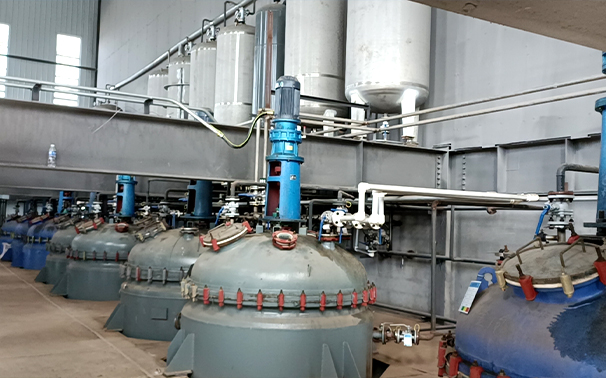different types of flocculants
Different Types of Flocculants An Overview
Flocculants play a crucial role in various industries, particularly in water treatment, wastewater management, and mineral processing. These substances help aggregate smaller particles into larger clumps (or flocs), which can then be easily removed from liquids. Understanding the different types of flocculants can enhance their application and improve efficiency in operations.
1. Organic Flocculants
Organic flocculants are derived from natural sources and are often biodegradable. They can be categorized into two main types synthetic organic flocculants and natural organic flocculants.
- Synthetic Organic Flocculants These are man-made polymers that can be customized to enhance performance in specific applications. Polyacrylamide is one of the most widely used synthetic flocculants due to its effectiveness in various conditions. It is highly soluble in water and has a large molecular structure, which aids in binding particles together.
- Natural Organic Flocculants These are derived from natural materials such as plant extracts and biopolymers. Examples include chitosan and starch. Natural flocculants are often favored in environments where environmental sustainability is a priority, as they have minimal ecological impact.
Inorganic flocculants are mineral-based compounds that work effectively in different conditions, particularly in high turbidity situations. Common inorganic flocculants include aluminum sulfate (alum) and ferric chloride.
- Aluminum Sulfate Often utilized in municipal water treatment facilities, alum is effective in removing suspended solids and color from water. It hydrolyzes in water, forming aluminum hydroxide, which encapsulates contaminants and enhances sedimentation.
- Ferric Chloride This flocculant is particularly effective in removing phosphates and suspended solids. Ferric chloride creates flocs that are larger and heavier than those formed by aluminum sulfate, leading to more efficient settling.
different types of flocculants

3. Bio-Based Flocculants
With an increasing emphasis on eco-friendly solutions, bio-based flocculants have emerged as a promising alternative to traditional flocculants. Originating from renewable resources, these flocculants minimize environmental impact while providing effective performance. Examples include polysaccharides from plants and microorganisms.
4. Cationic, Anionic, and Nonionic Flocculants
Flocculants can also be classified based on their ionic charge
- Cationic Flocculants Positively charged, these flocculants are highly effective in removing negatively charged contaminants, such as organic matter and some colloids. They are widely used in municipal wastewater treatment.
- Anionic Flocculants Negatively charged, anionic flocculants are suitable for conditions where positively charged particles need to be aggregated. They tend to work well in mineral processing and industrial wastewater treatment applications.
- Nonionic Flocculants These flocculants have no charge and are versatile, functioning effectively in both acidic and alkaline conditions. They are used in various applications, including the treatment of industrial effluents.
Conclusion
The choice of flocculant depends on various factors, including the specific application, water chemistry, and desired outcomes. Whether opting for synthetic or natural, inorganic or organic, understanding the characteristics and functions of different types of flocculants is essential for optimizing performance in treating water and wastewater. As environmental concerns rise, the industry continues to explore more sustainable flocculant options that provide both efficiency and ecological benefits.
-
Scale and Corrosion Inhibitors: Key to Industrial Water TreatmentNewsMay.22,2025
-
Organic Phosphate: Structure, Properties, and ApplicationsNewsMay.22,2025
-
Isothiazolinones: a versatile and versatile biocide with a wide range of applicationsNewsMay.22,2025
-
Industrial Flocculant: The Key to Optimizing Industrial ProcessesNewsMay.22,2025
-
Hydrolyzed Polymaleic Anhydride: Structure, Properties, and ApplicationsNewsMay.22,2025
-
Application of Flocculant in Water TreatmentNewsMay.22,2025





